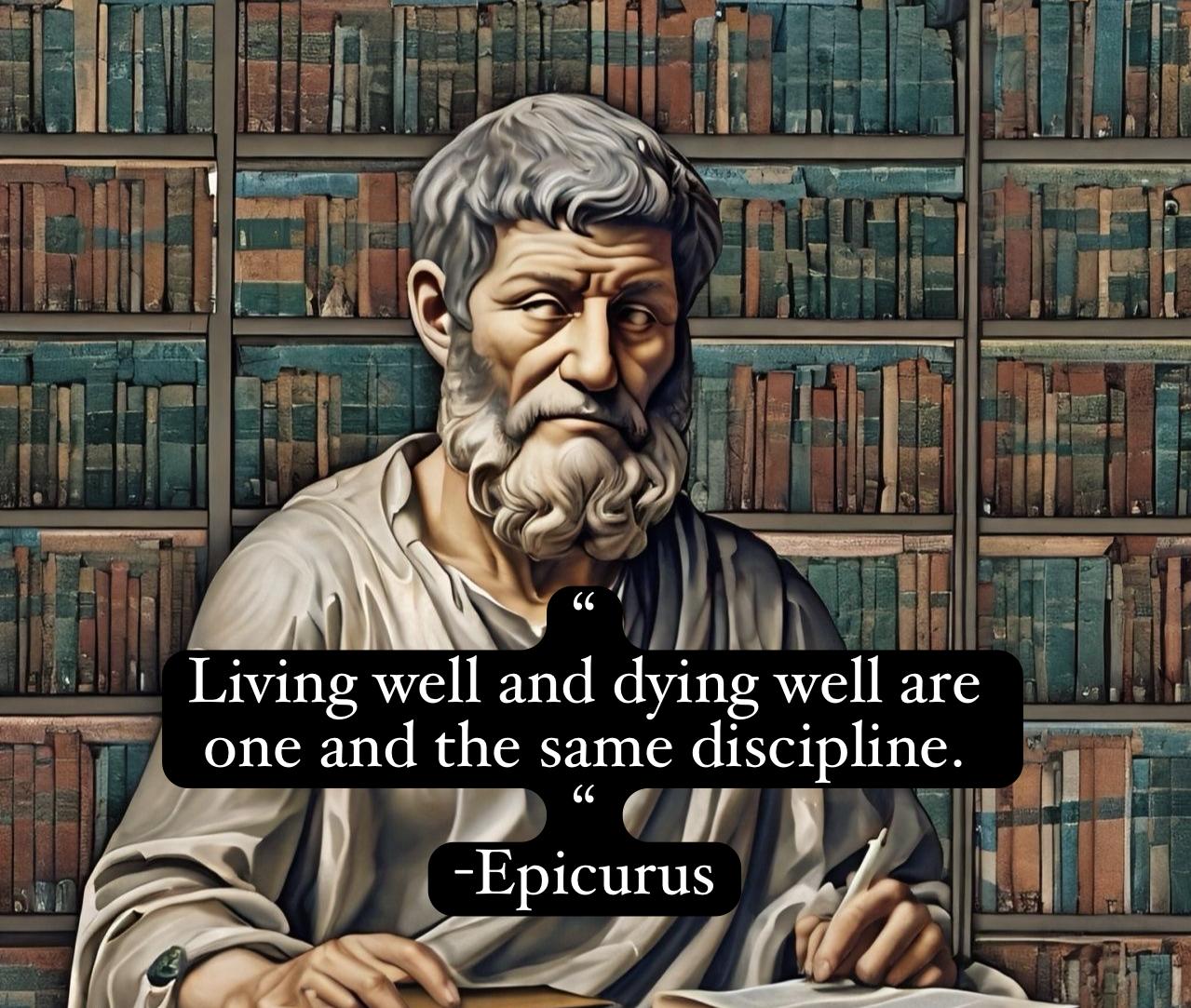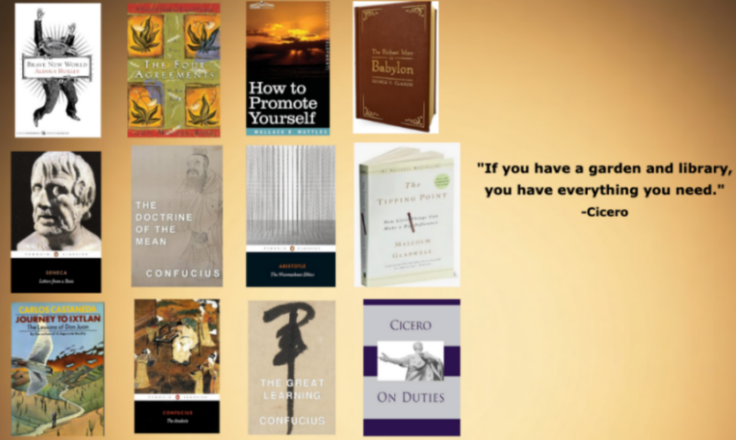The Eudaemonic Odyssey: Navigating Happiness with Epicurus

In the intricate tapestry of life, Epicurus, the ancient Greek philosopher, emerges as a beacon, guiding seekers on the profound journey toward eudaemonia—the flourishing of the human spirit. As we embark on this odyssey, let us delve deeper into each lesson from Epicurus's "The Art of Happiness," enriched by the infusion of Greek words that amplify the resonance of his timeless wisdom.
Absence of Pain (Aponia) and Tranquility of the Soul (Ataraxia)
Epicurus extends an invitation to discover the essence of happiness through the lens of Aponia—the absence of physical and mental pain. By minimizing desires and fears, individuals can attain a state of contentment and inner peace, cultivating Ataraxia—a tranquil soul that becomes the cornerstone of Epicurean philosophy. Embracing Aponia and Ataraxia provides a firm foundation for navigating the complexities of existence with equanimity.
Importance of Philia (Friendship)
In the Hellenistic philosophy of Epicureanism, Philia, or deep friendship, stands as a pillar in the pursuit of eudaimonia. Epicurus extols the virtues of authentic connections characterized by trust, mutual support, and genuine camaraderie. Philia goes beyond mere companionship; it becomes an integral component of a fulfilling and joyful life. The bonds forged in the crucible of true friendship contribute profoundly to the richness of the human experience.
Prudent Hedonism (Moderation in Hedone)
Within the rich tapestry of Greek philosophy, Hedone, or pleasure, is a nuanced concept that Epicurus explores with wisdom. Prudent Hedonism involves distinguishing between unnecessary and harmful desires, advocating for a balanced approach to life's pleasures. By embracing Hedone in moderation, individuals can navigate the delicate dance of joy without succumbing to the pitfalls of excess. It is the art of savoring life's pleasures without falling prey to the fleeting allure of indulgence
Philosophical Reflection (Philosophia)
Philosophia, or philosophical reflection, emerges as a cornerstone in Epicurean wisdom. Beyond the intellectual pursuit of ideas, Philosophia invites individuals to engage in introspection, contemplating their values, choices, and the very nature of existence. In the realm of Greek thought, this philosophical reflection becomes a transformative practice—a journey inward that leads to a deeper understanding of life's intricacies and an enhanced appreciation for its profound beauty.
Within the Greek lexicon, Logia encompasses sayings or utterances that encapsulate profound wisdom. Epicurus, a master of Logia, provides us with a treasury of quotes that resonate across time. These Logia serve not merely as aphorisms but as distilled nuggets of truth that echo the very essence of Epicurean philosophy. Each saying becomes a lantern, illuminating the path toward eudaimonia and offering guidance in the complexities of the human experience.
The Philosophy of Contentment (Euthymia)
In embracing Epicureanism, one adopts the philosophy of Euthymia, or contentment. By focusing on intrinsic pleasures, fostering meaningful relationships, and cultivating a tranquil soul, individuals embark on a journey toward enduring happiness
Epicurus's "The Art of Happiness" unfolds as a profound Eudaimonic Odyssey, offering practical insights and philosophical depth. As we weave through the Greek words embedded in his teachings, Epicurus becomes a symphony, guiding us through the complexities of existence—a timeless companion in the pursuit of eudaimonia.
Some of my favorite quotes from Epicurus:
"The greatest fruit of self-sufficiency is freedom."
"If I am death, then I am not. Why should I fear that which cannot exist when I do?"
"Do not spoil what you have by desiring what you have not; remember that what you now have was once among the things you only hoped for."
"It is not so much our friends' help that helps us, as the confidence of their help."
"The art of living well and the art of dying well are one and the same discipline."
"He who has a why to live can bear almost any how."
"Of all the means to ensure happiness throughout the whole life, by far the most important is the acquisition of friends."
"The misfortune of the wise is better than the prosperity of the fool."
"He who is not a good servant will not be a good master."
"The wealth required by nature is limited and is easy to procure; but the wealth required by vain ideals extends to infinity."



Leave a Reply
You must be logged in to post a comment.